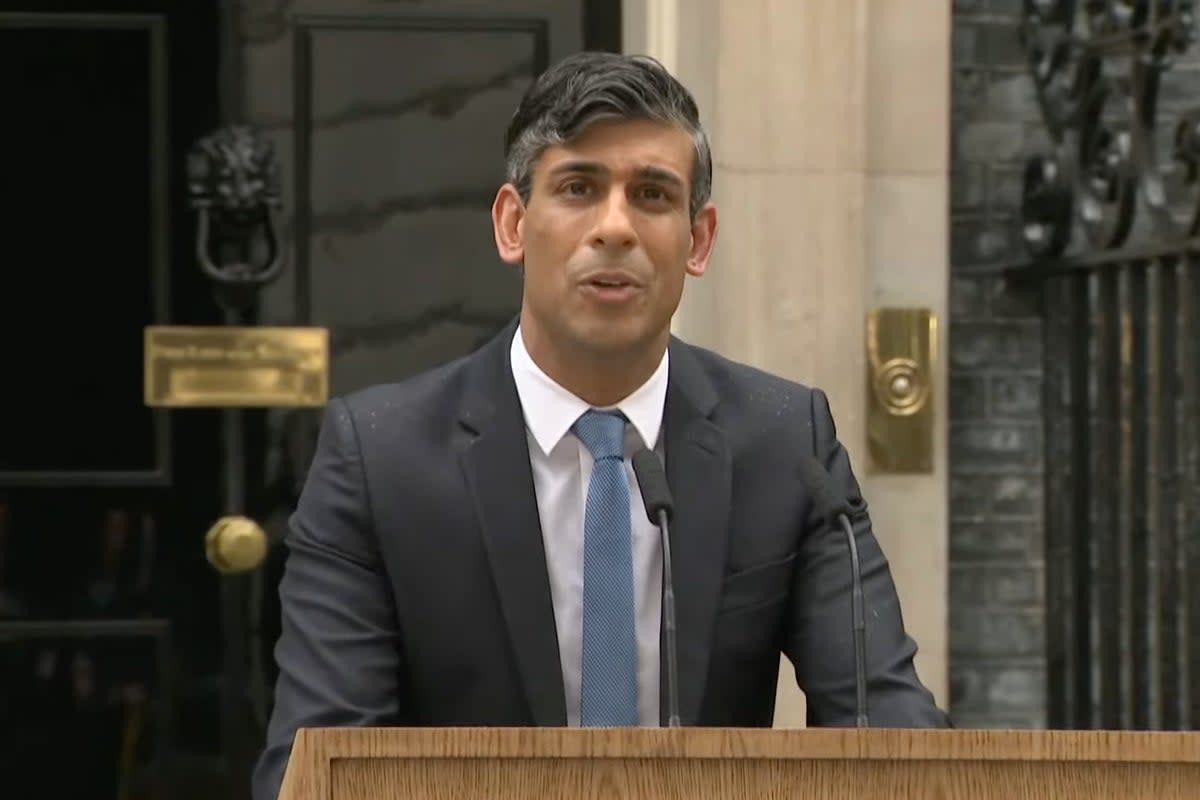Voices: Rishi Sunak has done the right thing calling a general election… but it’s over for the Conservatives

Rishi rolls the dice, then. After months when the prime minister gave every impression that he’d rather avoid the electorate than ask them for an historic fifth term of Conservative government, he has now chosen to be bold, brave and try and capitalise on a modest run of encouraging economic news.
At last, he has taken back control, to borrow a phrase, and exercised one of the few powers he has left to forge his own destiny – the timing of the election. Quite unexpectedly, he has stopped dithering over dates, seized the initiative, and no doubt will hope the country will thank him for ending the speculation – although, for many, the real frustration is the interminable wait for them to #GTTO, as they tag the yearning to get the Tories out on social media.
Notwithstanding the seemingly endless rain – which failed to stop for Sunak’s Downing Street announcement – the political weather seems to be improving, and the emergence of a few rays of actual and metaphorical sunshine may make the electorate that little bit more disposed to listen to the Conservative case. Sunak and his colleagues can look to progress on inflation and growth, the probable first flights of refugees to Rwanda and some selected pledges about the public services to build a platform. They will, of course, focus relentlessly on the supposed weakness of the Labour opposition; and Keir Starmer and his party is not invulnerable to attack.
All that said, prime ministers don’t usually call a general election when they are 20 points behind in the polls, and having been humiliated in local elections and suffered record-breaking swings in by-elections. Sunak’s party has rarely been so divided and disillusioned as it is now, and faces formidable challenges on every front. Indeed, so far from the political scene brightening up for him, the next general election feels like something of a psephological perfect storm.
No party has come from so far behind in the polls to win an election. Few parties have succeeded in staying in power for as long as Sunak is now planning to. The Tories are losing votes on multiple fronts. Many of those disappointed with the record of the government since 2019 will stay at home. Others, on the right, will turn to Reform UK. Many more will simply switch to Labour or the Liberal Democrats.
Tactical voting against the Conservatives has already re-appeared for the first time since 2001, and will turbocharge what promises to be a net swing to Labour even greater than that achieved by Tony Blair in 1997 or Clement Attlee in 1945. Many cabinet ministers and well-known Tory figures will be unseated, even in an optimistic reading of the outcome. It may well turn out to be the worst Tory defeat since the Great Reform Act of 1832.
So why call a general election now? Well, the unspoken assumption must be that Sunak judges that things aren’t going to get radically better, and that they may actually get worse – “events” could conspire to weaken them further.
What if the economy does not improve? What if there are more strikes in the autumn? Or the Rwanda plan fails again? The electorate, bored with this lot, could punish them simply for hanging on. If he carried on playing Mr Micawber, hoping “something will turn up”, he would look increasingly weak, and hardly in control of events. Endlessly distracted by the gossip about election timing, teased by Labour about being a chicken and, although far-fetched, threatened challenges to his leadership running on and on into the autumn or winter no longer looks attractive, if it ever did.
He’s decided to face his destiny. He’s done the right thing.


